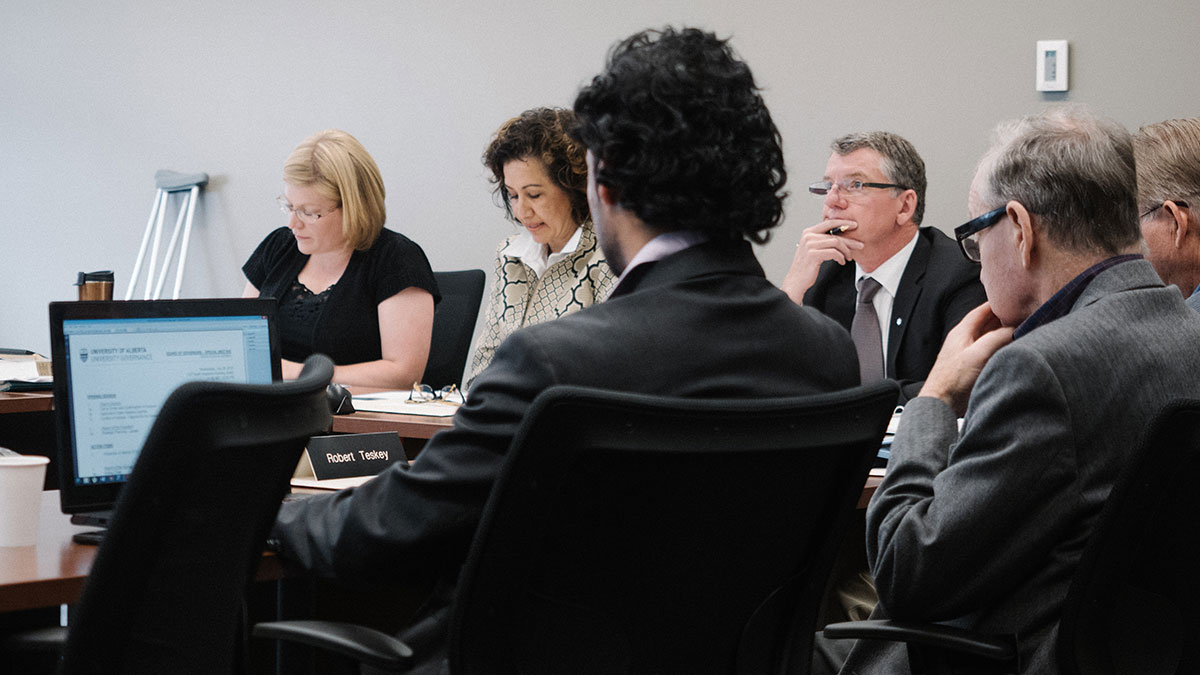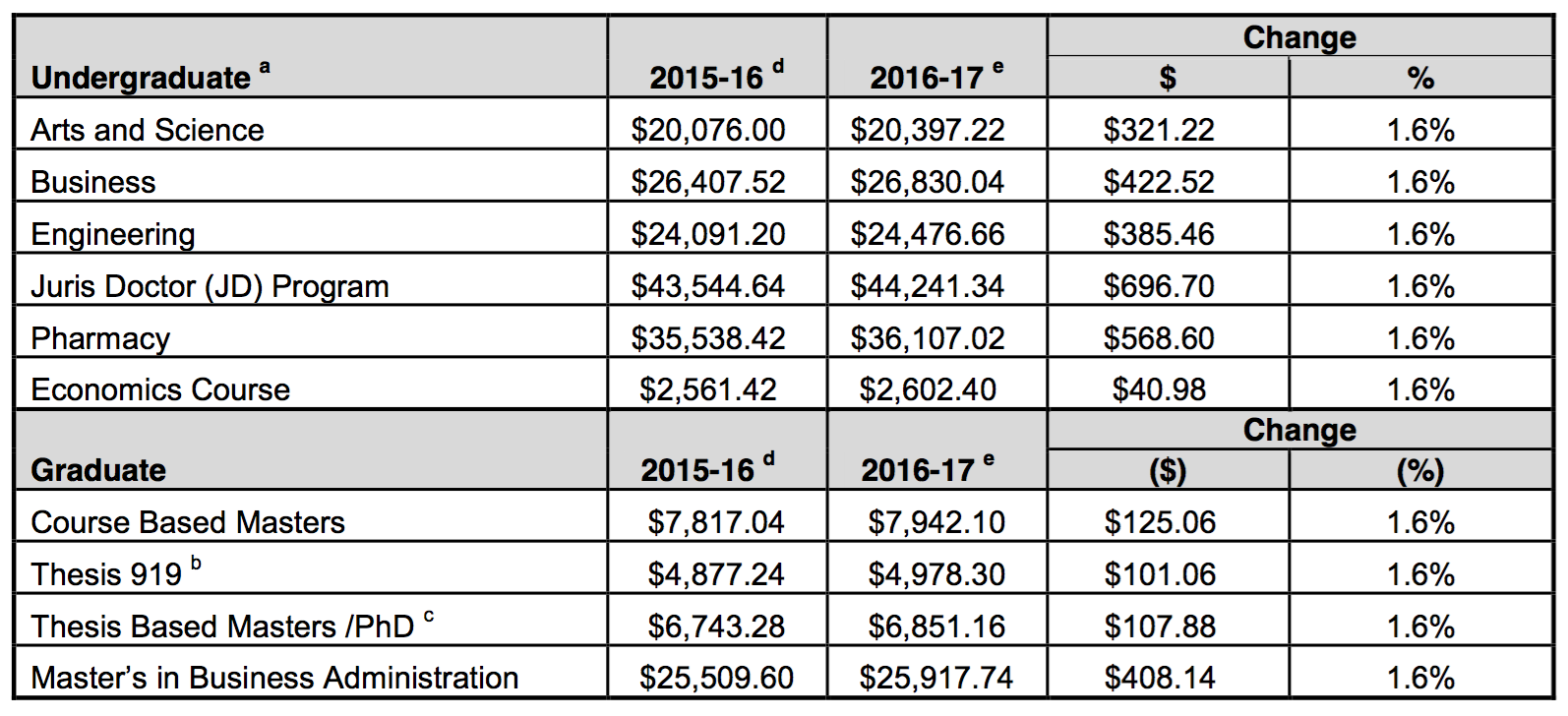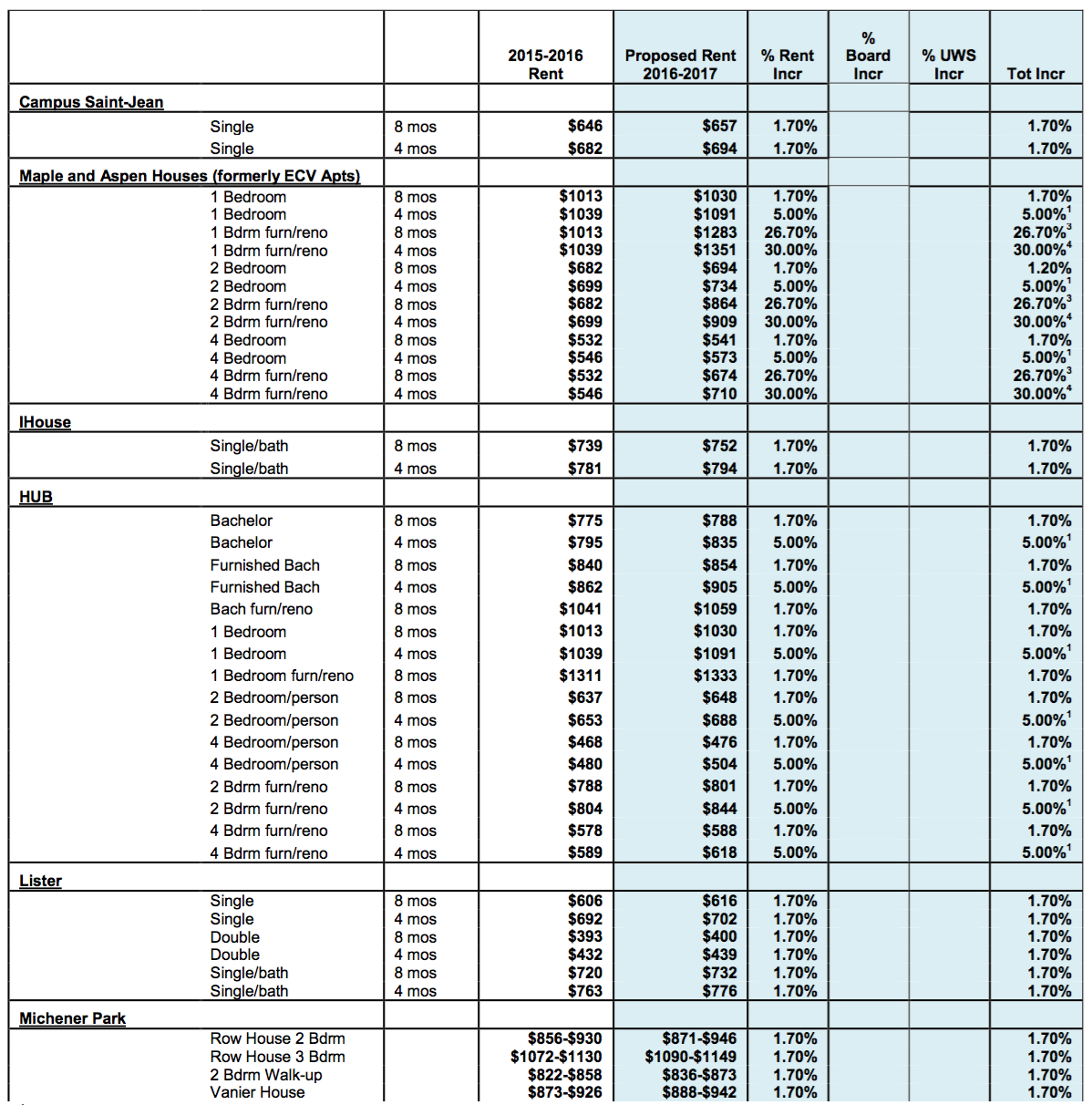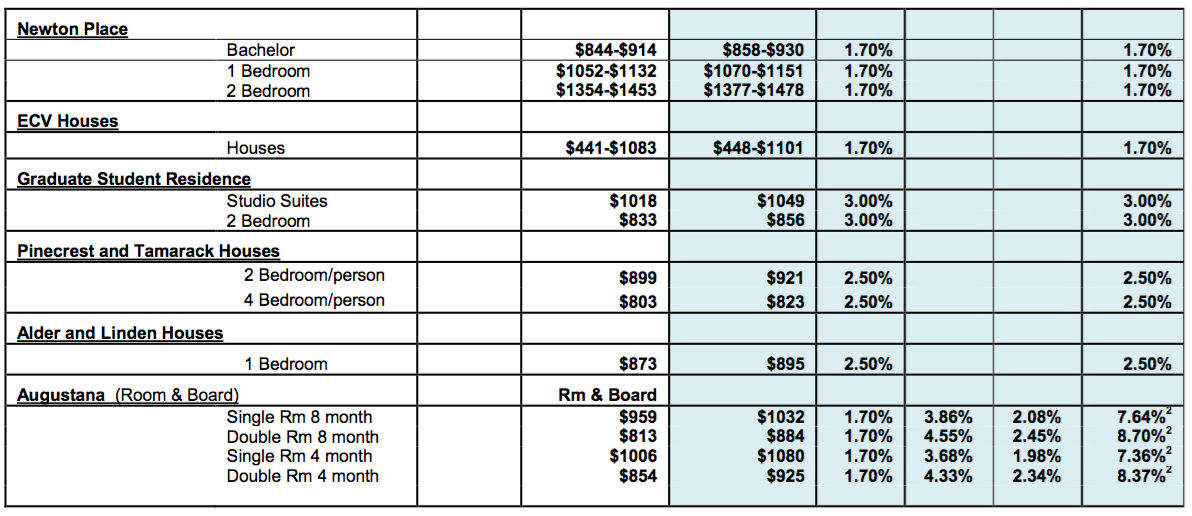Board of Governors Recap — Dec. 11
 Ab Sch
Ab SchInternational Tuition Fee Proposal (Approved)
Presented by: Provost and Vice-President (Academic) Steven Dew and Vice-President Phyllis Clark (Finance and Administration)
Dew and Clark tabled a 1.6 per cent increase to international tuition fees, effective Sept. 1, 2016, which passed with one vote against and one noted abstention.
The programs affected by the increase are as follows:

With Bill 3, the Alberta NDP government announced a two–year freeze on regulated domestic tuition, mandatory non-instructional fees and the previously approved market modifier increases. The Bill offset the Tories’ 1.4 per cent slash to the Campus Alberta Grant in March 2015, as the NDP’s announced two per cent grant increase for the 2015–16 academic year, worth $6.9 million, covering the previously introduced tuition and market modifier increases.
Instructional tuition fees are provincially regulated, but the regulation does not apply to individuals who are not Canadian citizens or permanent residents of Canada. Universities did not receive funding in Bill 3 to offset the losses of the international market modifier and tuition increases.
The rise in international tuition is in accordance with the Consumer Price Index (CPI), which is a Canadian indicator of consumer costs over time and allows the university to adjust their budget due to inflation. Graduate Students’ Association President Colin More voted in favour of the increase, as they support CPI, but noted how he was disappointed that international and domestic fees are treated differently.
Students’ Union President Navneet Khinda opposed the increase in international fees and was the only BoG member to vote against the motion. This makes it difficult for international students to plan for future years in their degree, Khinda said after the meeting. But next year’s 1.6 per cent increase is “nice” as its due to inflation, she added.
Students’ Union Undergraduate Board of Governors Representative Azhar Khan abstained from the motion.
Tuition and fees account for 18 per cent of the of the U of A’s revenue.
2016–17 Residence Rental Rate Proposal (Approved)
Presented by: Vice-President (Facilities and Operations) Don Hickey
U of A Ancillary Services do not receive base operating funding to build and maintain student residences. The university approved a 1.7 per cent increase to base rent costs in the 2016-17 academic year, as the BoG voted in favour of the proposal, with no votes against and one abstention due to conflict of interest.
The increases are differential to select residences, ranging from 2.5 per cent to 30 per cent.
The notable 30 per cent increase in Maple and Aspen Houses (formerly ECV) will go towards renovations and furnishing, and reflect a seven-year payback. Changing the unfurnished residences of Maple and Aspen Houses will allow the university to have greater control over issues such as bed bugs and the move-in move-out process, Hickey said.
A premium for four-month leases in Maple and Aspen Houses will be phased in over two years, as these leases typically end during the semester and risk remaining vacant until the next semester, and would also offset administration fees.
Hickey also announced that residence UWS access will be offered to next year’s tenants. Currently, an estimated 90 per cent of students access wireless internet in their residences from external providers, such as Shaw and Telus. Details regarding residence-specific UWS bandwidth allowance and terms of use have not been determined.
The increased revenue from rent will also go towards operational costs and maintenance.
The proposed changes will affect the following residences:


SU President Navneet Khinda voted in favour of the increase but commented that if the university wants to keep its residents diverse, it can’t be increasing rent by 30 per cent. The tenants of the U of A’s more expensive residences are already “homogenous,” she said.
Board member Ray Muzyka asked how the U of A compares to other institutions in terms of residence. Hickey replied that U of A students living in residences account for 15 per cent of the student population, which is below the percentage of competing post-secondary institutions. The U of A is working towards a goal of 25 per cent of students living in residences, as competitor UBC residences currently house 25 per cent of students with a goal of 50 per cent. This difference is attributed to construction costs being higher in Alberta, Hickey said. The U of A’s residence goal could be met with the construction of the Peter Lougheed Leadership Residence and the fifth Lister Tower, both currently under construction. BoG member Christopher Pu asked Hickey what the current tenancy in U of A residences is, to which Hickey said is “close to 100 per cent” during the Fall and Winter semesters.
Presidents’ Report
Presented by: President David Turpin.
Turpin discussed the current status of the Institutional Strategic Plan, which is in the consultation process. The plan has identified ten themes which will be researched in greater detail by its committee to be presented to the Board of Governors on Jan. 8, 2016.
Turpin also reported that two Syrian students have been offered the President’s Award for Refugees and Displaced Persons and are expected to begin studies at the U of A in January 2016. The award will support these students in both academic and residential costs.
University commences search for new Chancellor
Presented by: Barry James
Young will be leaving his position as Chancellor in June 2016. Nominations for a new Chancellor open this December and will close in March 2016. James encouraged all BoG members to nominate and recommend any individuals who they feel would be suited for the position of Chancellor. A committee will be screening the nominations, but the BoG and members of the Senate will make the final decision on the next U of A Chancellor.
The Senate will appoint the new Chancellor by voting on the nominees in their May 6 session.
The Chancellor chairs the U of A Senate and serves on the Board of Governors. They represents the public in the university and also presides over degree ceremonies at the U of A.




